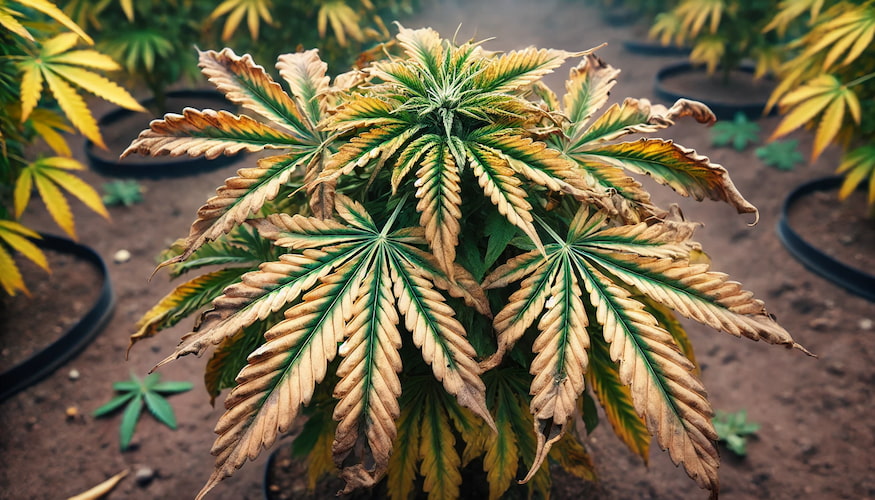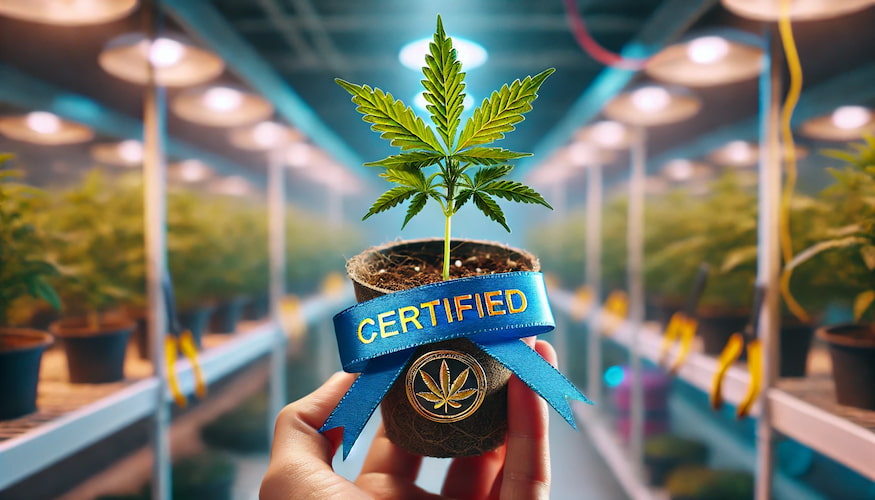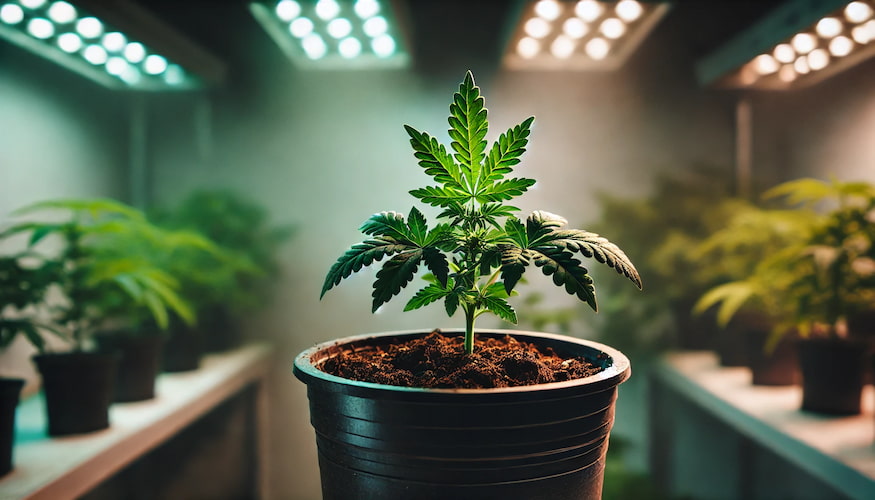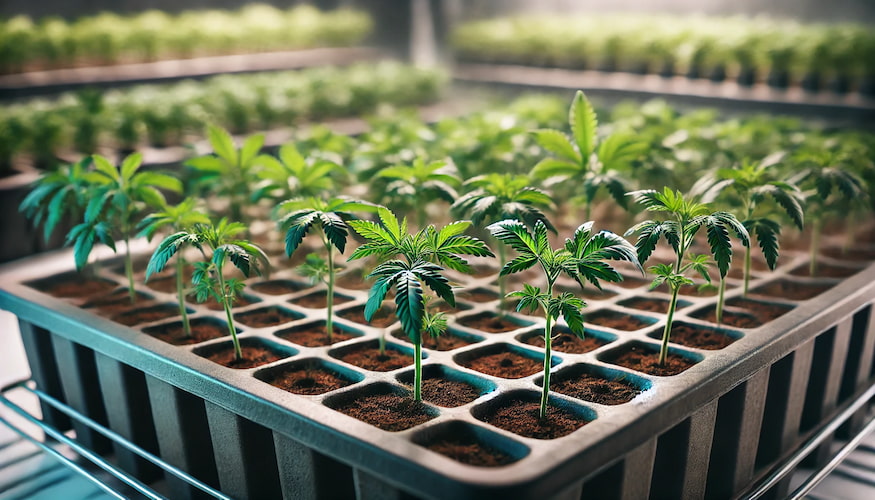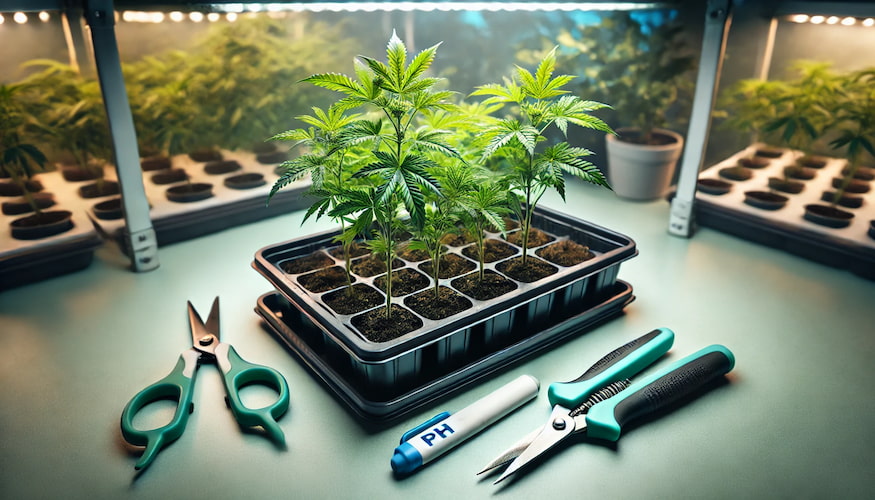Introduction: The Importance of Early Detection
Recognizing nutrient deficiency signs early is crucial for maintaining healthy cannabis clones and ensuring optimal growth. At IWantClones.com, we’re committed to helping you cultivate the healthiest plants possible. This comprehensive guide will teach you how to identify and address common nutrient deficiencies in your cannabis clones.
General Signs of Nutrient Deficiencies
Before we dive into specific deficiencies, here are some general signs that your cannabis clones might be experiencing nutritional issues:
- Discoloration of leaves (yellowing, browning, or unusual patterns)
- Stunted or slow growth
- Weak stems or branches
- Leaf deformities or unusual textures
- Reduced flower or bud development
Specific Nutrient Deficiency Signs
1. Nitrogen (N) Deficiency
Signs:
- Older leaves turning pale green to yellow
- Accelerated leaf senescence (early leaf drop)
- Stunted growth, smaller leaves
Correction:
- Increase nitrogen-rich fertilizers
- Consider foliar feeding with a nitrogen-heavy solution
2. Phosphorus (P) Deficiency
Signs:
- Dark green leaves with purple or red hues, especially on stems
- Slowed growth and weak root development
- Smaller leaves and fewer branches
Correction:
- Add phosphorus-rich fertilizers
- Ensure proper pH for phosphorus uptake (6.0-7.0 in soil)
3. Potassium (K) Deficiency
Signs:
- Yellowing or browning of leaf edges and tips
- Curling of leaf edges
- Weak stems and branches
Correction:
- Increase potassium-rich fertilizers
- Consider adding wood ash to soil (for outdoor grows)
4. Calcium (Ca) Deficiency
Signs:
- New growth appears distorted or dying
- Brown spotting on leaves
- Weak stems and branches
Correction:
- Add calcium-rich supplements like Cal-Mag
- Ensure proper pH for calcium uptake
5. Magnesium (Mg) Deficiency
Signs:
- Interveinal chlorosis (yellowing between leaf veins) on older leaves
- Leaf margins turning yellow or red
- Leaves curling upwards
Correction:
- Apply Epsom salts solution or magnesium-rich fertilizers
- Adjust pH to ensure proper magnesium uptake
6. Sulfur (S) Deficiency
Signs:
- Entire plant lightens in color, including veins
- Stunted growth and spindly stems
- Leaf tips yellowing and curling upwards
Correction:
- Add sulfur-containing fertilizers
- Consider using Epsom salts (magnesium sulfate)
7. Iron (Fe) Deficiency
Signs:
- Interveinal chlorosis on new growth
- Leaves may appear almost white in severe cases
- Stunted growth
Correction:
- Apply iron chelates
- Address pH issues, as iron is often unavailable in high-pH conditions
8. Zinc (Zn) Deficiency
Signs:
- Interveinal chlorosis, often in a striped pattern
- Stunted growth and “rosetting” of terminal leaves
- Leaves may be smaller and distorted
Correction:
- Apply zinc-rich fertilizers or foliar sprays
- Check for excessive phosphorus, which can interfere with zinc uptake
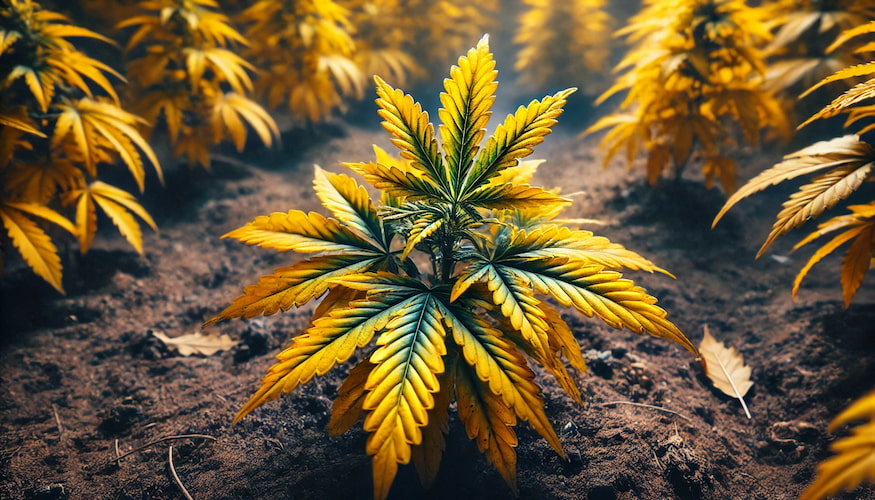
pH and Nutrient Availability
Remember that pH plays a crucial role in nutrient availability:
- Soil: Aim for a pH between 6.0 and 7.0
- Hydroponic: Target a pH between 5.5 and 6.5
Invest in a quality pH meter and regularly check and adjust your growing medium’s pH.
Using Visual Aids for Diagnosis
To assist in identifying nutrient deficiencies, consider:
- Taking clear, close-up photos of affected leaves
- Using a magnifying glass to examine leaves in detail
- Comparing your plants to reference charts or images
When to Seek Expert Help
If you’re having trouble diagnosing or correcting a nutrient issue, don’t hesitate to seek expert advice. Our team at IWantClones.com is always available to help you troubleshoot and find solutions.
Preventing Nutrient Deficiencies
The best approach to nutrient deficiencies is prevention:
- Start with high-quality, healthy clones from IWantClones.com
- Use a balanced, complete nutrient solution appropriate for your growing medium
- Regularly monitor pH and adjust as needed
- Implement a consistent feeding schedule
- Flush your growing medium periodically to prevent nutrient lockout
Conclusion: Nurturing Healthy Cannabis Clones
Recognizing and addressing nutrient deficiencies promptly is key to maintaining healthy, productive cannabis plants. By familiarizing yourself with these common deficiency signs and their corrections, you’ll be well-equipped to provide your clones with the optimal nutrition they need to thrive.
Remember, healthy plants start with healthy clones. At IWantClones.com, we’re dedicated to providing not just high-quality, nutrient-rich cannabis clones, but also the knowledge and resources you need to keep your plants healthy throughout their lifecycle. Explore our site for more growing tips, and don’t hesitate to reach out to our expert team for personalized advice on nutrient management and overall cannabis cultivation.
Your success is our success—choose IWantClones.com for premium cannabis clones and unparalleled growing support!

